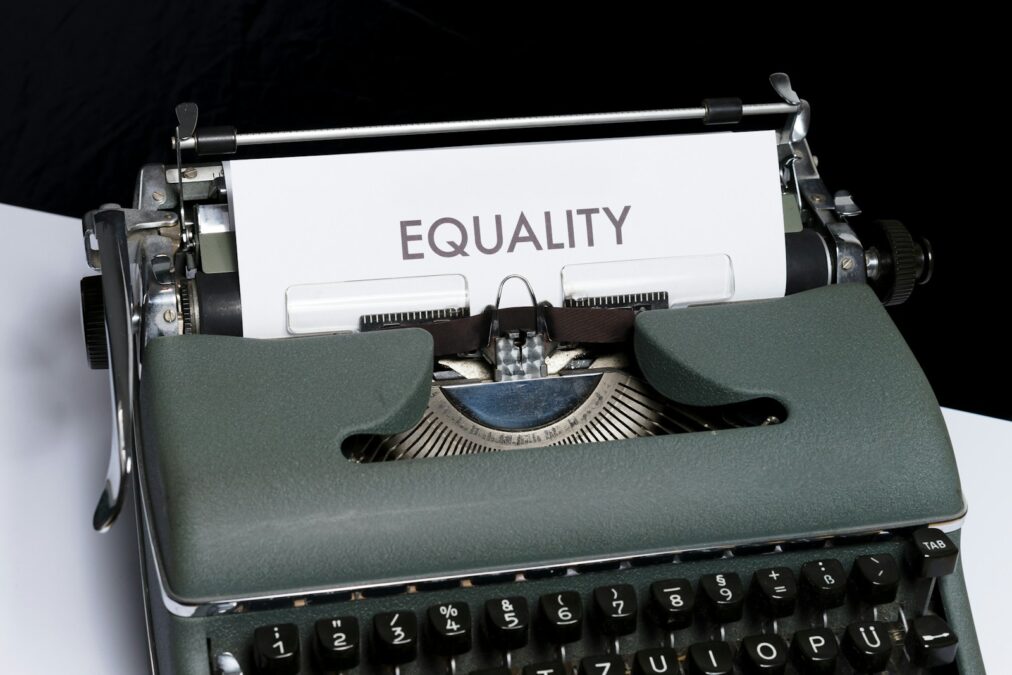The Imperative of Implementing the Declaration of Independence for Women in Business
The Historical Context and Modern Implications of Gender Equality
Gender equality in business leadership is not just a moral or ethical issue—it is a fundamental economic and social imperative. As Leland Stanford, a visionary American businessman, once argued, the principles of equality enshrined in the Declaration of Independence should extend to women, particularly in roles of leadership and governance. Today, in fast-evolving business hubs like Riyadh and Dubai, the drive towards gender equality is gaining momentum, influencing policies and practices across industries.
In Saudi Arabia and the UAE, significant strides have been made to incorporate women into the workforce and leadership positions. These changes are not just about rectifying historical imbalances but are also seen as essential for driving business innovation and success. Companies that embrace gender diversity in their leadership teams often report better problem-solving capabilities and higher creativity, which are crucial for competitiveness in today’s global market.
However, despite progress, women often face disproportionate challenges in climbing the corporate ladder. This discrepancy highlights the need for continued efforts in promoting gender equality in leadership through targeted executive coaching, mentorship programs, and organizational policies that advocate for equal representation.
Enhancing Executive Coaching to Support Women Leaders
Executive coaching programs across the Middle East are increasingly focused on gender equality in business leadership. These initiatives are designed to prepare women for high-level positions and address the unique challenges they face in the corporate world. Coaching helps bridge the gap by providing women with the skills, knowledge, and confidence required to excel in leadership roles.
These programs often include training in effective communication, negotiation, and strategic decision-making—areas where women executives may face implicit biases. Moreover, coaching provides a supportive environment where women can learn from experienced mentors who guide them through the intricacies of leadership in traditionally male-dominated industries.
In Riyadh and Dubai, where economic diversification plans heavily promote the inclusion of women in all aspects of business, such coaching programs are vital for achieving the societal and economic benefits of a more diverse leadership landscape.
Role of Policy and Advocacy in Promoting Gender Equality
Policy initiatives and advocacy play critical roles in promoting gender equality in business leadership. In the UAE and Saudi Arabia, government-led initiatives such as Saudi Vision 2030 and the UAE Gender Balance Council are excellent examples of how legislative and policy frameworks can be effectively used to advance gender equality in the corporate sector.
These policies are not just about increasing female participation in the workforce but also about integrating women into senior management and executive roles. By setting quotas, offering incentives for companies that achieve gender parity, and implementing supportive workplace policies, governments can create an environment conducive to female advancement.
Moreover, businesses themselves are encouraged to adopt internal policies that promote gender diversity, such as equal pay for equal work, flexible working conditions, and zero tolerance towards discrimination and harassment. Such measures are essential for cultivating an inclusive corporate culture that values and nurtures talent irrespective of gender.
Utilizing Technology to Support Gender Equality Initiatives
Advanced technologies such as artificial intelligence, blockchain, and the Metaverse can play pivotal roles in enhancing gender equality in business leadership. By implementing these technologies, businesses can create more transparent and merit-based systems for recruitment, performance evaluation, and promotion. For instance, AI can be used to design unbiased algorithms that help in identifying and eliminating gender biases in hiring processes.
In Riyadh and Dubai, where the push for technological innovation aligns with social reforms, companies are exploring how blockchain can secure and verify employment records and performance reviews without any alterations, ensuring fair treatment. Additionally, the Metaverse offers new venues for networking and training, accessible to all regardless of gender, providing women with equal opportunities for growth and development.
These technological tools not only support the operationalization of gender equality policies but also help monitor compliance and progress towards gender parity goals, enabling businesses to hold themselves accountable to their commitment to diversity and inclusion.
Challenges and Opportunities for Women in Leadership
While the path to gender equality in business leadership has many advocates, significant challenges still remain. Cultural stereotypes and unconscious biases often persist, creating barriers that women need to navigate differently compared to their male counterparts. In addition, balancing work-life commitments can be particularly demanding for women, as societal expectations often place a double burden on them.
However, these challenges also present unique opportunities for organizations to innovate and improve their workplace cultures. Companies that actively work to dismantle these barriers and support women through initiatives such as flexible work policies and robust parental leave programs are often viewed as employers of choice, attracting top talent and improving their public image as progressive and equitable workplaces.
Leadership development programs tailored specifically for women can also help address these challenges by preparing women for leadership roles and empowering them to succeed. These programs, by focusing on the specific needs and experiences of women, can make a significant difference in leveling the playing field.
Empirical Evidence Supporting Gender Diversity
Empirical studies consistently show that gender diversity in leadership positions is linked to better organizational performance. Research indicates that companies with diverse executive boards experience higher profitability and are more likely to exhibit superior stock market performance than those with less diversity.
In economically dynamic regions like the UAE and Saudi Arabia, leveraging this empirical evidence can persuade more businesses to adopt gender diversity as a strategic priority. By demonstrating the clear business benefits of gender diversity, advocates can strengthen their case for more inclusive leadership practices.
Businesses that embrace this reality and strive to improve their gender diversity not only contribute to a fair and just marketplace but also enjoy a competitive edge in the global economy. This creates a compelling business case for gender equality in leadership that is hard to ignore.
Future Trends in Gender Equality and Leadership
As we look towards the future, the trends in gender equality in business leadership are promising but will require sustained effort and commitment from all sectors of society. Technological advancements and global cultural shifts towards inclusivity suggest that the landscape for women in business will continue to improve.
However, true gender parity in business requires ongoing vigilance and advocacy. Emerging technologies and new platforms for work will continually evolve, and ensuring that these innovations support gender equality will be crucial. Forward-thinking companies in Riyadh, Dubai, and globally are already setting benchmarks by integrating gender parity into their strategic goals.
As more businesses recognize the intrinsic value of diverse leadership, we can expect a significant transformation in corporate cultures worldwide, leading to more equitable and just business practices that truly embody the ideals of the Declaration of Independence as envisioned by pioneers like Leland Stanford.
#Women, #Men, #Government, #LelandStanford, #American, #Businessman, #GenderEquality, #LeadershipSkills, #ExecutiveCoaching, #EffectiveCommunication, #BusinessSuccess, #SaudiArabia, #UAE, #Riyadh, #Dubai, #ArtificialIntelligence, #Blockchain, #Metaverse























